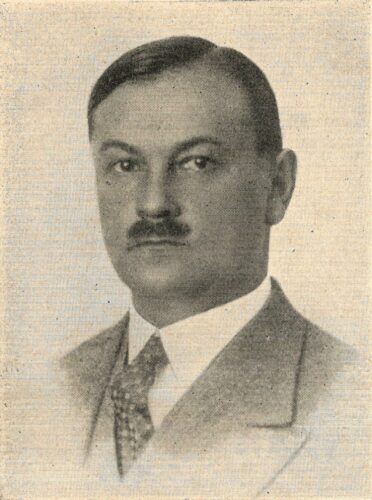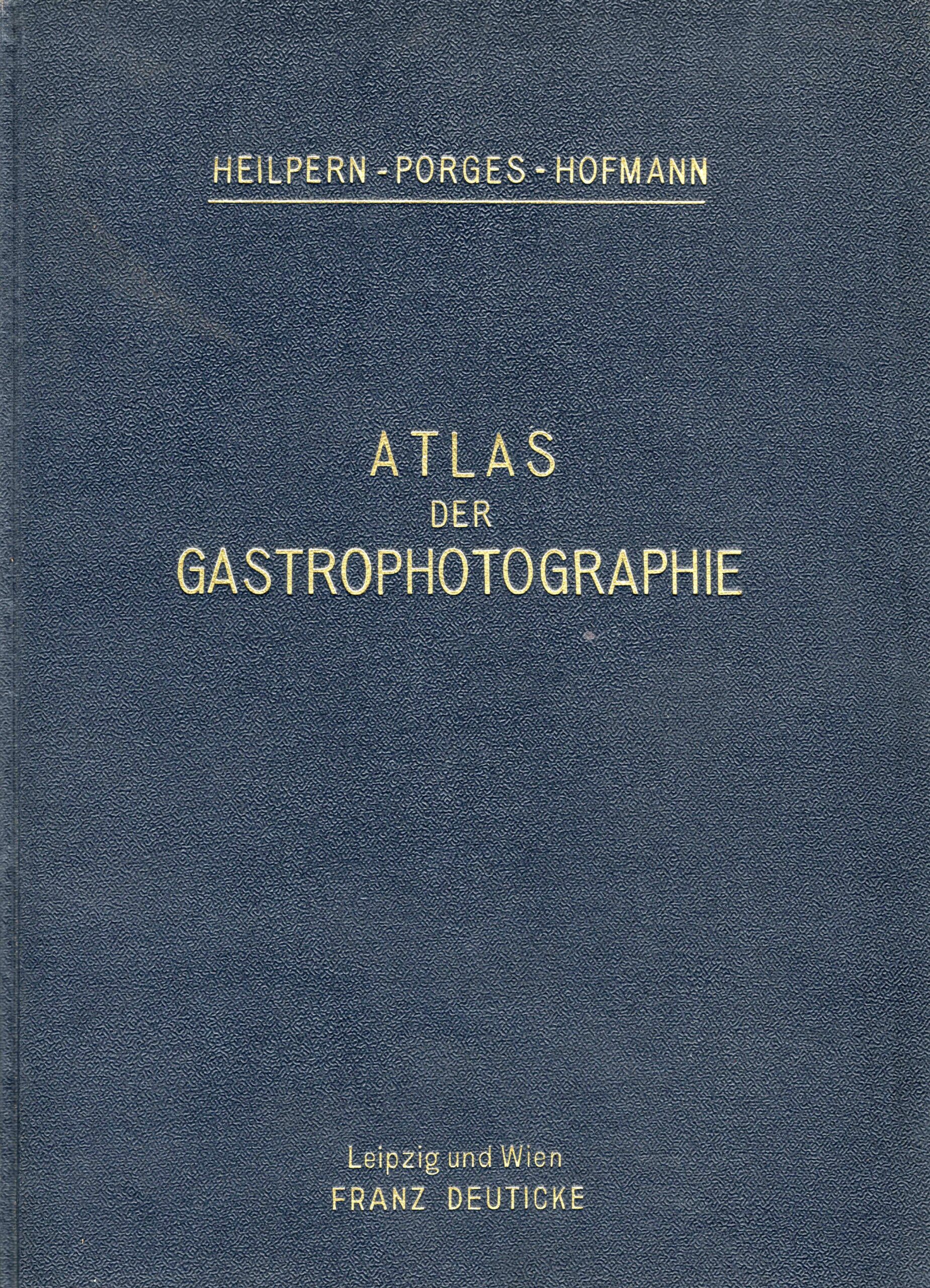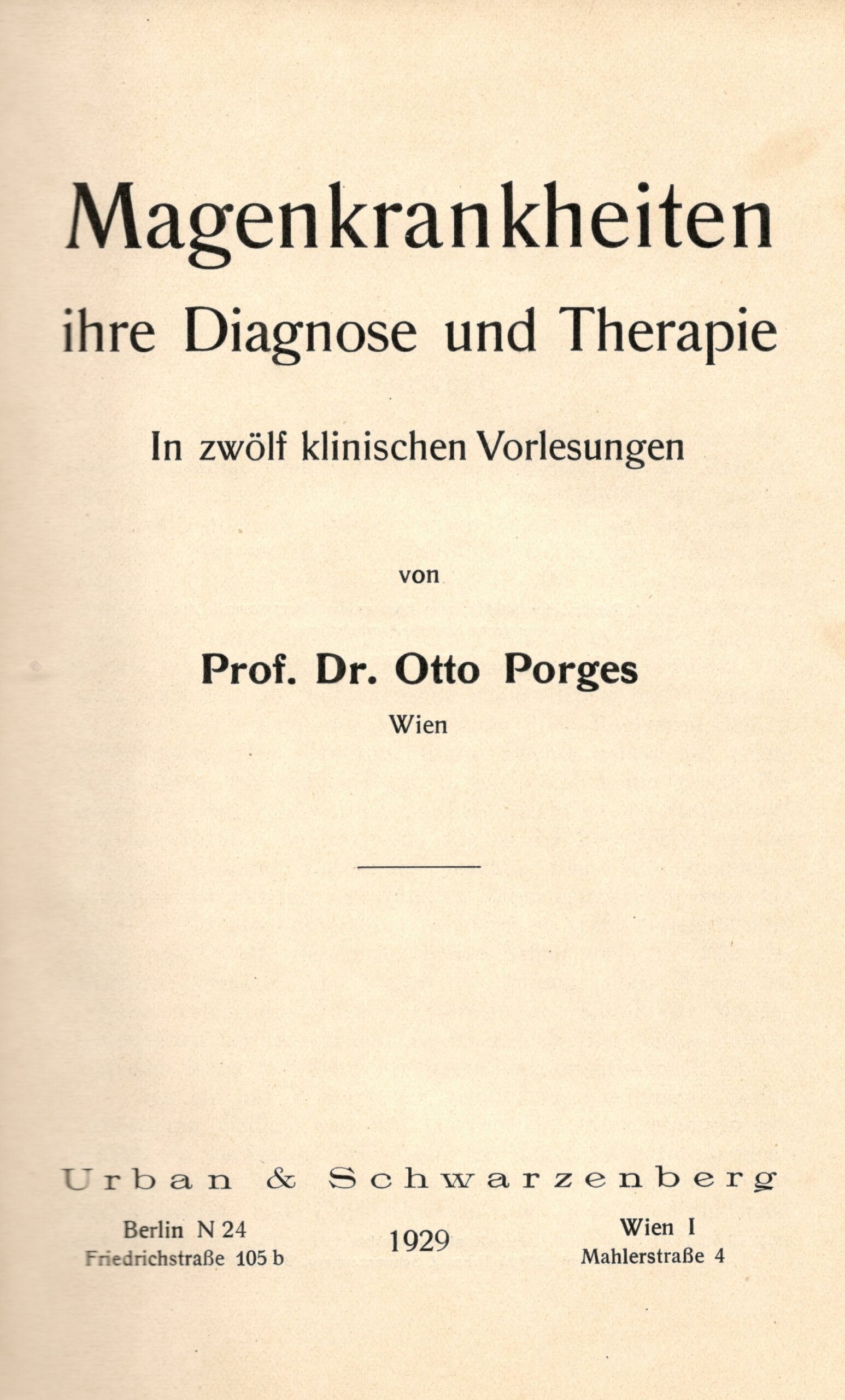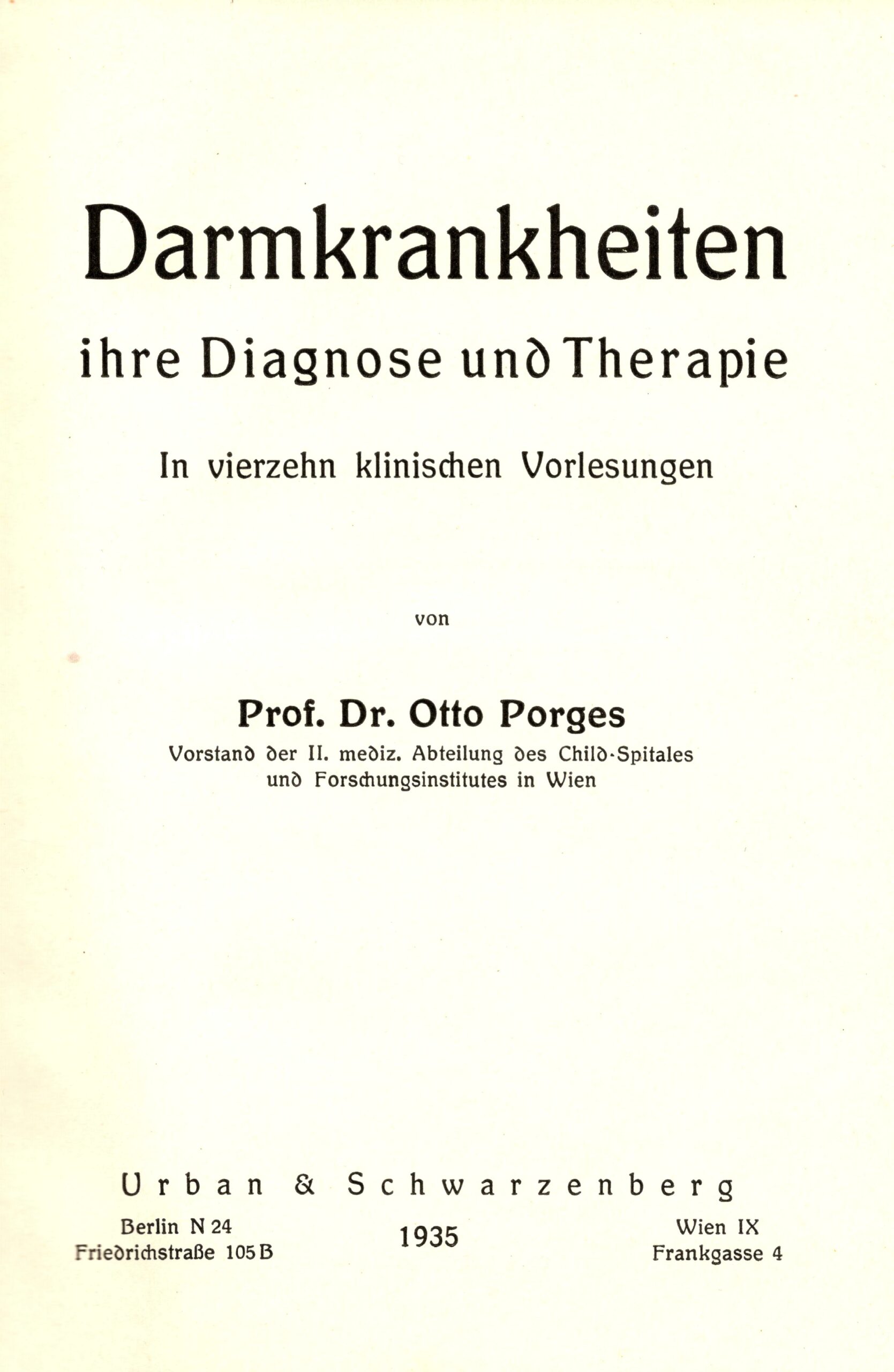Prof. Dr. med. Otto Porges
- Brandeis an der Elbe/Brandýs nad Labem, Bohemia, Czech Republic, 01.04.1879
- Chicago, 19.11.1967
- Member since 1925
- Escaped to the USA in 1938
- Vienna
- Specialist in internal medicine
Otto Porges was born in Brandeis an der Elbe, Bohemia, in 1879 as the son of Samuel Porges and his wife Emilie, née Nosal.
Education and Places of Work
Porges took up his medical studies at the German University in Prague in 1897. He moved to Strasbourg in 1901 to continue his studies, where Franz Hofmeister and his co-workers – the biochemist Karl Spiro and the internist Bernhard Naunyn – left their mark on Porges. He published on the immunological significance and determination of gamma globulins in serum together with Karl Spiro. Porges passed his state examination and received his doctorate from the German University in Prague in 1903.
Porges initially worked at the Children’s Hospital of the University of Vienna in 1904 after having completed his studies. Porges worked with the pharmacologist Otto Loewi and Hans Meyer at the Children’s Hospital.
Porges joined Nathan Zuntz at the Institute of Animal Physiology at the Agricultural College in Berlin in 1906, where he worked on the pH dependence of respiratory regulation.
He had been an intern at the I. Medical University Clinic in Vienna under Carl von Noorden since October 1906. After von Noorden’s departure, he became senior physician to von Noorden’s successor, Karel F. Wenckebach, in 1914. Porges had received a lot of input for his work on the pathophysiology of the metabolism by Carl von Noorden and Hugo Salomon: for example on hypoglycaemia following adrenalectomy and on diabetes mellitus.
Porges conducted research on the diagnosis of syphilis at the Robert Koch Institute in Berlin under the immunologist and bacteriologist August von Wassermann in 1907. He was concerned with the technique and methodology of serodiagnosis of syphilis, in particular with the role of colloids and lipoids in the laboratory tests of the time for the diagnosis of syphilis. He described the Porges-Meier flocculation reaction in syphilis together with Georg Meier (Berliner Klinische Wochenschrift 1908; 45: 731-733).
Otto Porges habilitated in internal medicine at the University of Vienna in 1910. He was appointed professor (extraordinarius) in Vienna in 1920.
He actively participated in the First World War.
The scientific focus of Porges’ work lay on metabolic issues and the diagnosis and therapy of gastrointestinal diseases and he was particularly devoted to gastrophotography.
Otto Porges headed the I Medical University Clinic in Vienna for four years, from 1929 to 1933. After Hans Eppinger had been appointed as full professor of internal medicine in Vienna, Porges terminated his work at the Vienna Medical University Clinic.
Porges ran a large private medical practice in Vienna and was appointed head of the I. Medical Clinic of the Hospital and the Research Institute of the Samuel Canning Childs Foundation in Vienna for the research and treatment of internal diseases and cancer in 1935. The clinic and institute – located at Pelikangasse 15 in Vienna’s IX district – were founded by the American industrialist Samuel Canning Childs in 1929 out of gratitude for his treatment by Viennese doctors.
Escape from Vienna to the USA via Yugoslavia in 1938
Otto Porges initially fled to Bled in Yugoslavia in July 1938. In the autumn of 1938, he, his wife, and their two 18- and 19-year-old children reached France via Italy and Switzerland. The family had obtained an entry visa for the USA and were able to cross the Atlantic Ocean from Le Havre aboard the S.S. Ile de France on 19 October 1938. They reached New York on 25 October 1938. The Porges family settled in Chicago and were granted US citizenship in 1944.
Porges worked at the Department of Internal Medicine at Northwestern University Medical School and as a consultant for other hospitals in Chicago as well as in private practice. He continued to publish.
Otto Porges died in Chicago on 19 November 1967 at the age of 88.
Acknowledgements
We are very grateful to Maria Porges, USA, for having been in touch with us in 2013 and for her special support, as well as for the exceptionally kind provision of substantial parts of the unpublished manuscript of her grandfather Otto Porges’ autobiography.



